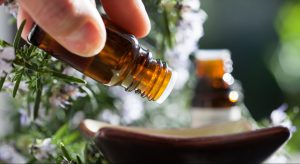Anxiety and depression are some of the most common mental health issues experienced by many. Although taking medication and getting therapy is necessary, many follow natural ways along with professional treatment. However, in the same way that an Ambery Saffron Perfume can provide luxury within budget, aromatherapy can provide relaxation and comfort, too.
Aromatherapy is the practice of using scents and essential oils to achieve physical or mental benefits or relaxing effects. It is a natural way to boost your psychological well-being within minutes. The following article is here to explain the help aromatherapy can do on anxiety and depression!
Understanding Aromatherapy
Aromatherapy has been practiced since ancient times. In ancient Egypt and China, there existed the practice of using aromatic plants to boost psychological and physical health. Essential oils, especially lavender, chamomile, and rose to ease anxiety and relax when it comes to mood boosting. These oils could be used in various methods like diffusion, massage, baths, and many more to fit into an everyday wellness routine.
The Science Behind Aromatherapy
When we breathe in essential oil molecules, they travel quickly into the part of the brain that registers scents—the olfactory nerves. The olfactory nerves are located right beneath the frontal portion of the brain and the limbic system, a branch of the brain tasked with processing emotions and storing memories.
Choosing the scent known to attack specific parts and functions can be beneficial. Nevertheless, what most people use aromatherapy for is its ability to boost mood by eliciting neurotransmitter responses from the aromatic molecule.
Aromatherapy for Anxiety Management
The following essential oils are widely known to help anxiety:
Lavender: The same linalool that gives parsley energy also gives lavender calmness. This well-researched essential oil is highlighted for inducing calm by cannily affecting mood and the body. Furthermore, this essential oil is shown to be very useful for anxiety because it can reduce stress levels and relaxing the body.
Chamomile: Chamomile is more than a flower—it’s an age-old medicine. The leaves can be turned into a gentle, relaxing tea, stems for digestive disorders—nothing on this plant is wasted. The oil is no different, of course.
Extracted from the flower, it is known to be very mild and can be turned to when in need of relaxing and calming a hyperactive mind. It can be used to manage anxiety effectively and promotes relaxation. Add the oil to the pulse points and inhale for some time to enjoy its full benefits!
Bergamot: Bergamot is far beyond a refreshing scent! This oil carries a rejuvenating, uplifting energy in it to help with mood and anxiety. It works best when added into a diffuser or when added to a carrier oil and massaged over the body.
Aromatherapy for Depression Management
Depression is a mental health disorder characterized by persistent feelings of sadness and hopelessness. Aromatherapy can be helpful for debilitating conditions such as depression and essential oils like rose, jasmine, and ylang-ylang those oils have properties to combat depression.
Rose: Rose has a comforting and calming scent and can enhance your mood and helpfight the feelings of depression. Use rose oil by diffusing or adding it toa personal inhaler for mood support through the day.
Jasmine: Jasmine oil is great for increasing energy levels and reducing depression. Jasmine can help restore better mood and can make help you feel reduction in symptoms through better energy levels. Jasmine oil essential can be inhaled directly or be added to diffuser to improve mental health.
Ylang-Ylang: This exotic essential oil has an incredibly rich, sweet and floral fragrance, which can lower stress levels, promote cheerfulness, and combat symptoms of anxiety and depression. Use ylang-ylang oil with your aromatherapy diffusers and in a carrier oil for applying topically.
Safety Considerations
You should always be cautious while using essential oils and scents. Buy them only from trusted sources and take the time to read about the safety guidelines of each product. Some oils can cause allergies so you should take extra care when trying something new.
Apart from that, if you are on medication and want to use these oils on a larger scale via diffusers, etc., please consult your physician or a pharmacist. You should never apply pure essential oils topically; always dilute them with a carrier.
Conclusion
Aromatherapy provides a natural, gentle way to manage depression and anxiety. By adding essential oils and fragrances to your daily routine, you may start to experience a lift in your emotional status and a noticeable increase in relaxation. Learning more about aromatherapy and other treatments can show patients a holistic path to their mental wellness, including overall wellness and a healthy life.








